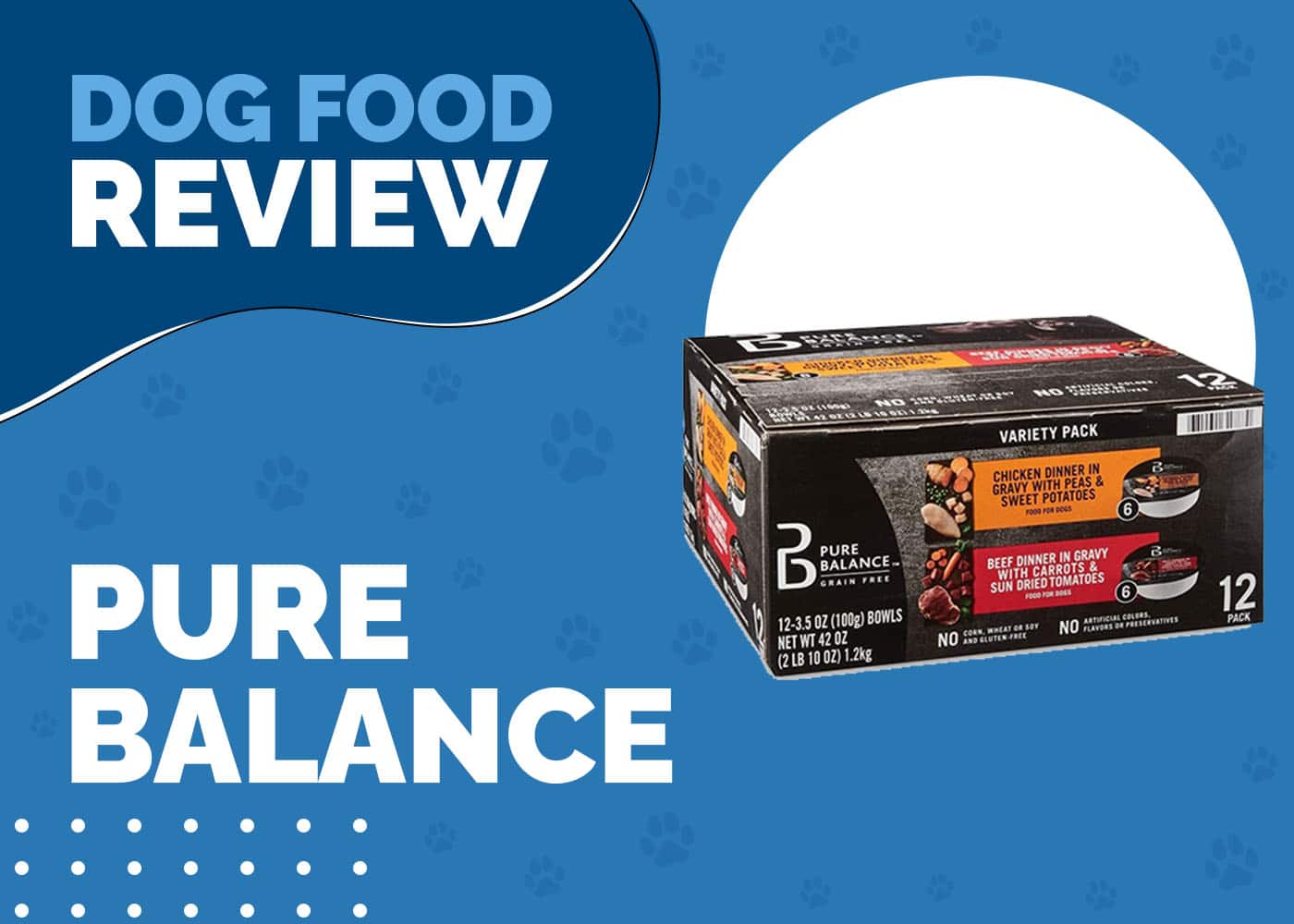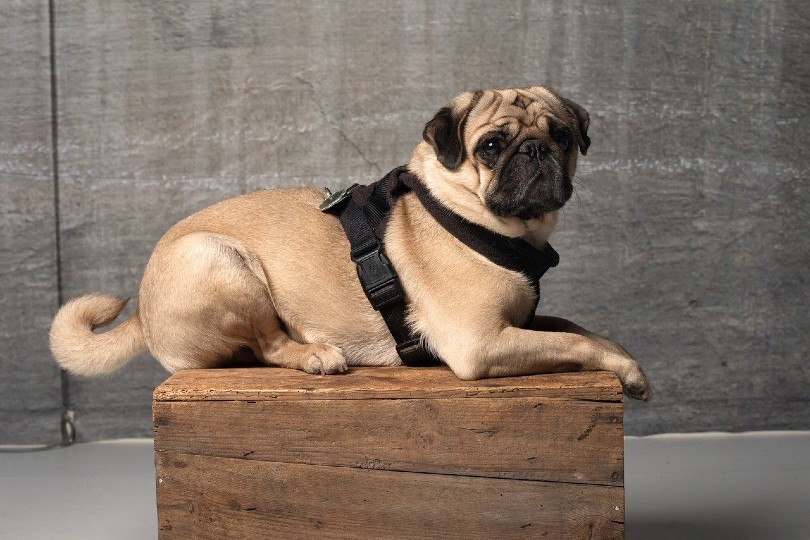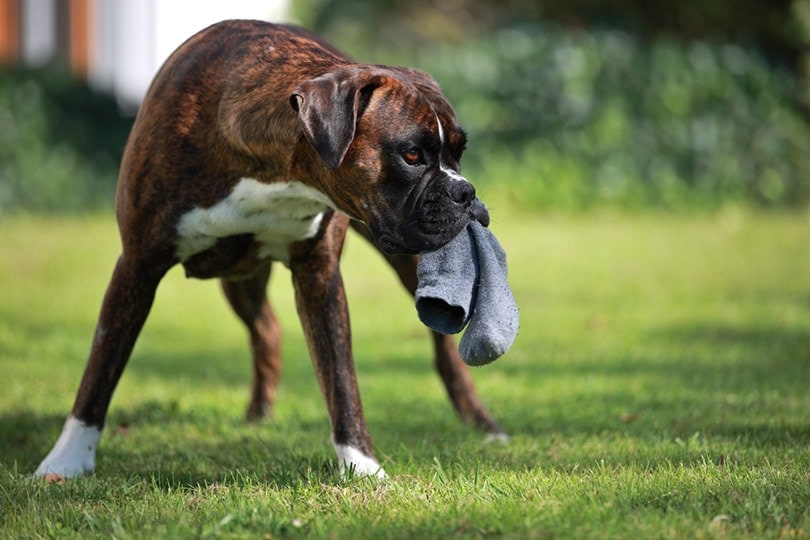How to Stop Your Dog from Biting When Excited: 5 Simple Tricks
Updated on
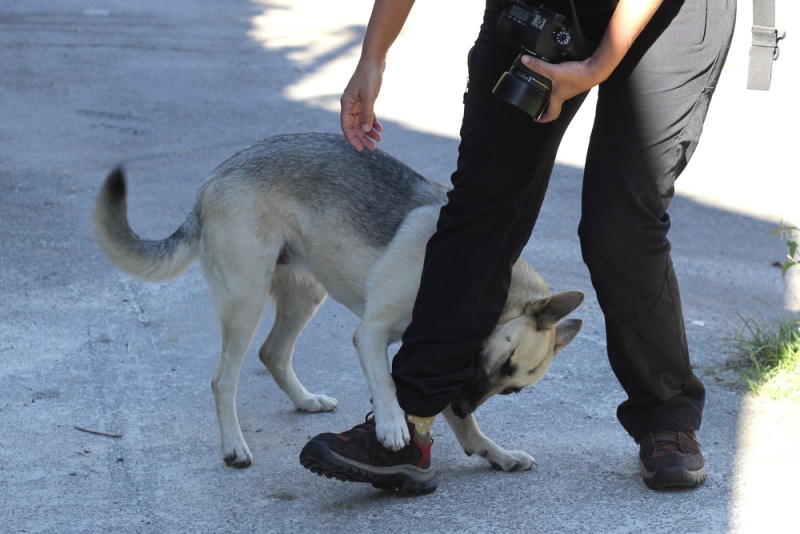
All dogs get excited at times, and when they do, they may bite or nip you, not realizing it’s an undesired behavior. Puppies are typically guilty of this because they put almost everything in their mouths while exploring the world—however, most puppies may grow out of this behavior on their own, but it can become a real problem for those who do not.
In this post, we’ll list five simple tricks to stop your dog from biting when excited and stop dog nipping for good.
The 5 Tricks to Stop Your Dog from Biting When Excited
1. Use Time-Out
Much like toddlers who need a little encouragement for acceptable behavior, time-out can be a useful tool to discourage dog nipping or biting. You can start this as early as his teeth touch your skin rather than waiting for the bite. Puppies or dogs that have never been taught not to bite or nip do not realize the sensitivity of human skin and may bite hard without any knowledge they are causing you pain.
As soon as you feel your puppy’s teeth touch your skin, let out a high-pitched “yelp,” then ignore him for at least a minute. If your pup follows you, walk away from him and continue to ignore him for 30–60 seconds. This will teach your dog that biting down is unacceptable and only results in you paying him no attention.
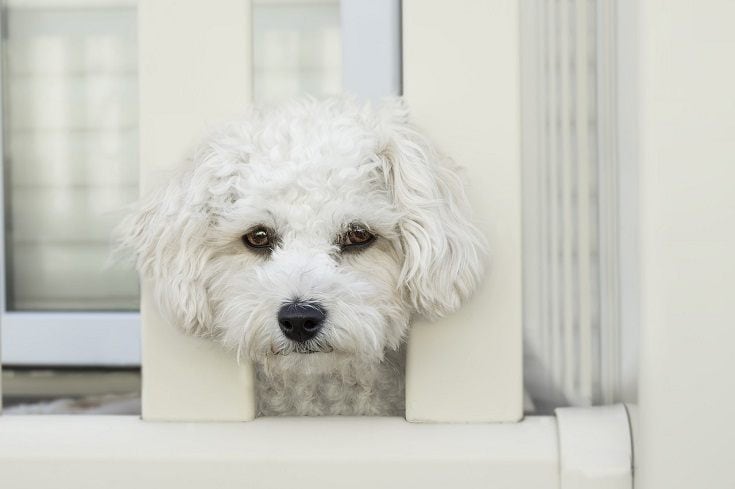
2. Give Your Dog Plenty of Chew Toys
This generally applies to puppies but can be useful for any age—ensure your pup has plenty of chew toys for oral stimulation. You can also engage your pup in a game of tug-of-war to avert his attention toward the game and not you directly.
3. Teach Basic Commands
Teaching your dog basic commands, such as “no,” “stop,” and “sit,” can go a long way, and you can use these basic commands when your dog bites while excited. But first, your dog must actually learn these commands.
To teach your dog to sit, hold a treat close to his nose and lift your hand with the treat slightly. Your dog will visually follow the treat, which makes his behind lower. Once in the sitting position, praise with the treat and repeat the process until your dog understands the command.
To teach “stop,” hold your hand up in front of your dog as if signaling him to actually stop. When he does, reward and praise him.
To teach “no,” you’ll want to use a stern and firm tone while saying the word, but never yell at your dog or show aggression, as these behaviors may entice your dog to act defensively.
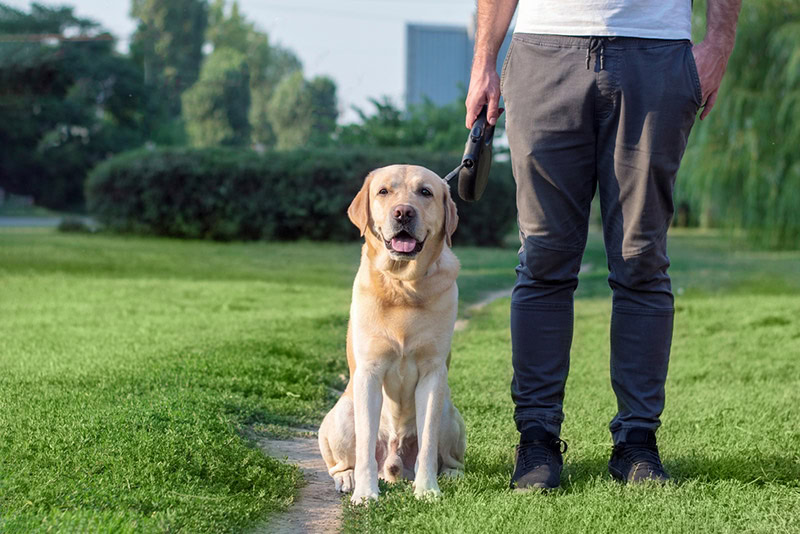
4. Use Mealtimes as a Training Tool
Most dogs get excited when they know food is on the horizon and may get overly excited. You can train your dog to be calmer before mealtimes, which will correlate well with being excited overall.
Start by placing his food bowl down, but instead of letting him chow down right away, tell him to “sit.” Ideally, have him sit for at least a full minute, and then let him go at it. This method teaches your dog not to be overly excited, even with something as exciting as mealtime. If you can master this method, your dog will be less likely to bite when excited.
5. Repeat the Stimulation
If your dog gets excited every time the doorbell rings or someone comes over, you need to repeat the stimulation over and over, even for a couple of days. You may need your family or friends’ help for this, but in the end, it will teach your dog to act more calmly when he’s excited.
Remember the basic commands? Now you see why teaching basic commands is essential. Use whatever command you feel is the most effective, and use it each and every time. Remember, consistency is key, so be patient.
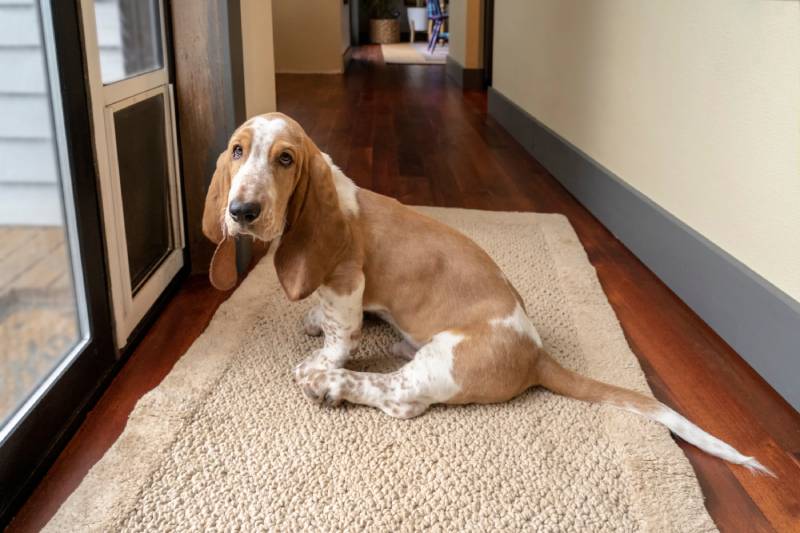
Why Does My Dog Bite or Nip When Excited?
One reason puppies or dogs may bite or nip when excited is the simple reason they want to play. They know the behavior will get a reaction from you, and if you can ignore it, it’ll show that biting will result in negative consequences.
Most dogs grow out of the behavior once they reach adulthood, which is usually at the 1-year-old mark. However, it may take some breeds 2 years to fully mature and reach adulthood.
Another reason may be that your puppy or dog is nervous or frightened. A situation that may cause nervousness is a move to a new home, adding a new pet or person into the household, and loud noises, such as thunder or fireworks.
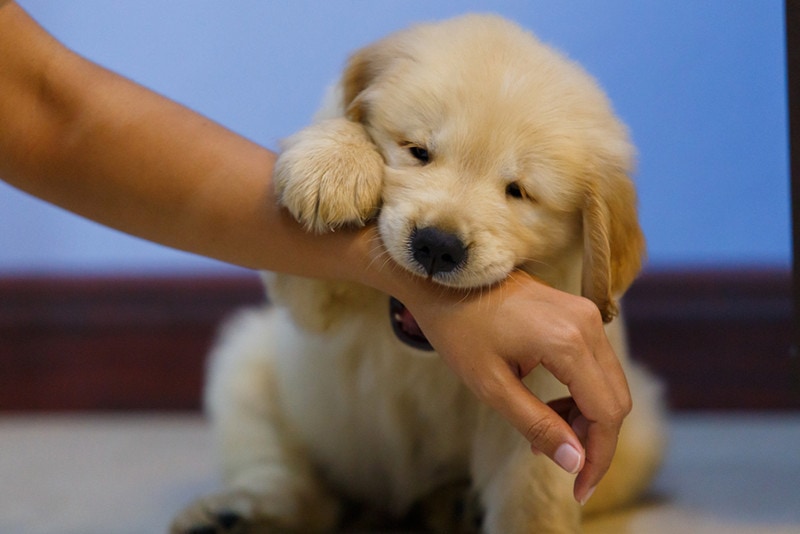
Are Dog Bites Dangerous?
Dog bites are only dangerous if the bite breaks the skin; in that case, bacteria from the dog’s mouth can lead to infections. If you are ever aggressively bitten by a dog, administer first-aid, and if necessary, see a doctor to assess the wound. Typically, playful biting or biting when excited will not break the skin, but it’s best to prevent the behavior, just in case.
Final Thoughts
The trick to keeping your dog from biting when excited is creating a calm atmosphere in the home. Dogs may bite and nip because they are excited to the point where they don’t know how else to behave. If you can prevent your dog from becoming overly excited at mealtimes or when guests come over, odds are he’ll stop the biting too.
See Also:
- 10 Best Puppy Training Treats – Reviews & Top Picks
- 10 Best Chew Toys for Dogs – 2023 Reviews & Top Picks
Featured Image Credit: Patri Sierra, Shutterstock



